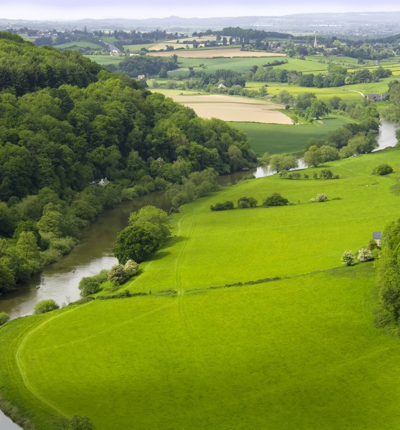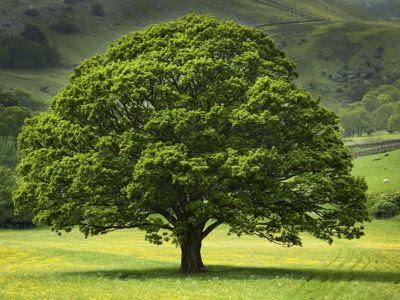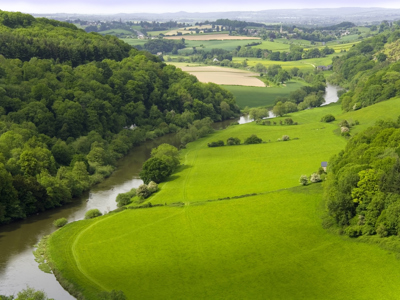
Campaigner applies to Supreme Court over Wye Valley cattle shed plan
Herefordshire resident, David Sahota has asked the Supreme Court to hear his claim that planning permission was given unlawfully to a farmer for a cattle shed on the edge of the River Wye Special Area of Conservation.
Posted on 10 January 2023
David has applied to the Supreme Court after both the High Court and Court of Appeal rejected his arguments that Herefordshire County Council granted permission for the shed within the upper Golden Valley in the parish of Dorstone without regard to Regulation 63 of the Habitat Regulations.
The ecological health of the River Wye has declined rapidly over recent years largely as a result of agricultural pollution. The regulation states that if a plan is going to have a significant effect on a special area of conservation (SAC), such as the River Wye catchment, there must be an appropriate assessment of its conservation implications and Natural England must be consulted.
Herefordshire Council gave permission after its ecology officer advised planning officers that there was no need for a Habitats Regulation Assessment because the shed would not lead to any possibility of effects to the River Wye. That was in spite of the fact that there are already a number of livestock sheds on the site and the manure stored and spread on the land has only one place to go during rainfall, into the River Dore, into the River Monnow and ultimately into the River Wye.
At the Court of Appeal David argued that the High Court was wrong to accept ‘post hoc’ justification from the ecology officer that was submitted three months after planning permission had been granted and that the planning committee had been misled into believing that there was no need for a Habitats Regulations Assessment.
In his application to the Supreme Court, David argues that the approach of the lower courts to planning cases has meant that the “precautionary principle” has not been applied. This is the legal standard that any scientific doubt about a project’s impact on a protected site should be eliminated before permission is granted.
This case also addresses the cumulative impacts of the intensive farming development, already on this site, and in the Wye SAC.
David’s case is being supported by the Good Law Project.
David Sahota said:
“Despite having lost the previous two cases, the important issue has not gone away. I am delighted that Good Law Project has stepped in to help me raise awareness of the importance of this case, in my endeavour to get justice for the River Wye and other rivers in England and Wales.”
Good Law Project Legal Manager Emma Dearnaley said:
“The River Wye is meant to be a protected conservation area, but it is in steady and alarming decline due to agricultural pollution. The new Bage Court Farm development on the banks of one its tributaries, the River Dore, threatens to dump yet more manure into its waters – inflicting further ecological damage. That is why Good Law Project is supporting local campaigners in their bid to challenge previous decisions endorsing this development in the Supreme Court.
“We are anxious to protect the River Dore and the River Wye. And the case also raises a very important principle of EU law. If successful, this case will set a legal precedent that will protect rivers across the country, by requiring tighter environmental safeguards to be met before new livestock developments are approved.
“Getting the Supreme Court to hear this appeal will be a high bar to clear. But it is really important that we try. Time is running out to protect our rivers and waterways for us and for the generations to come.”
David is represented by Leigh Day environment law solicitor Ricardo Gama, who said:
“Our client is disappointed that the lower courts have accepted that a local planning authority may grant permission for a project that will obviously lead to the deterioration of protected habitats such as the River Wye without carrying out an assessment under the Habitats Regulations.
“There appears to be a mismatch between the precautionary approach which is required by the Habitats Regulations and the hands-off approach that the courts adopt when considering planning judicial reviews. This appeal will test whether that is true and therefore whether the approach of the lower courts is contrary to the Habitats Regulations.”




